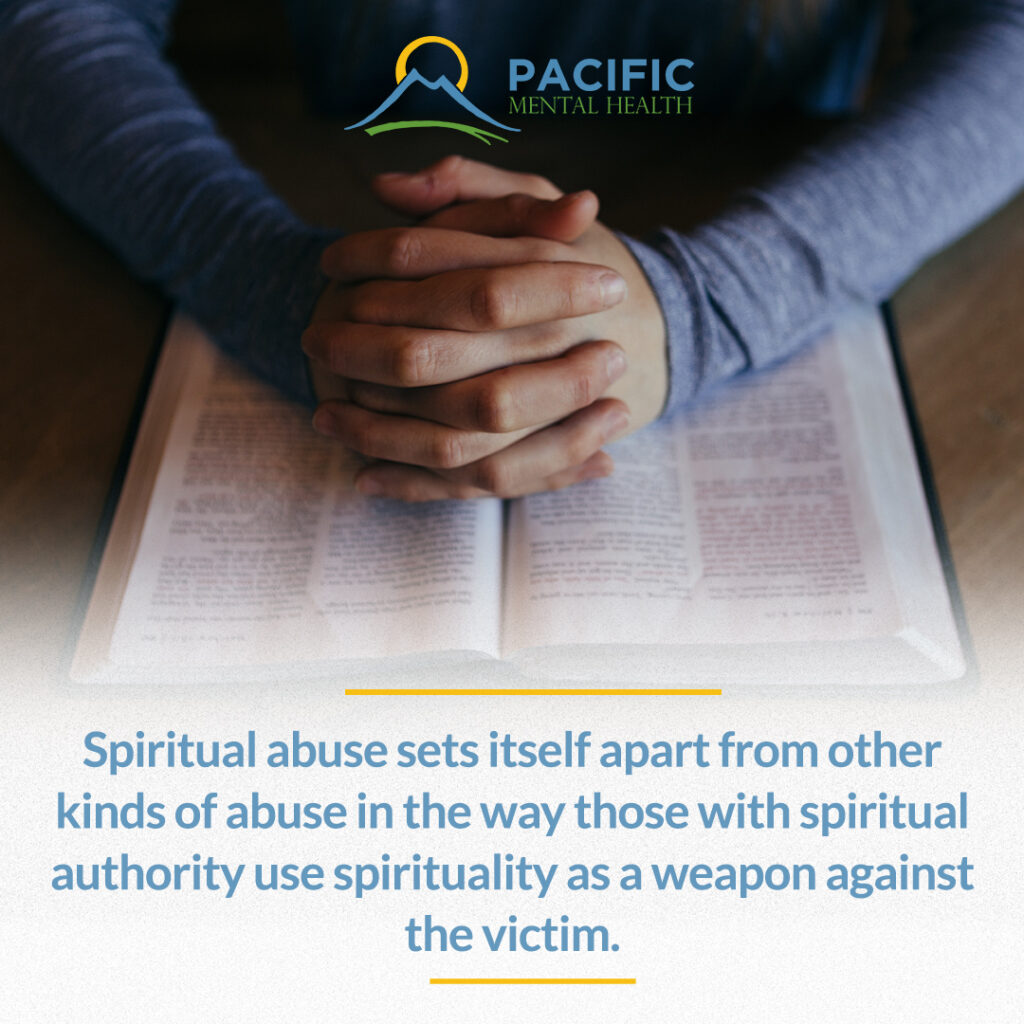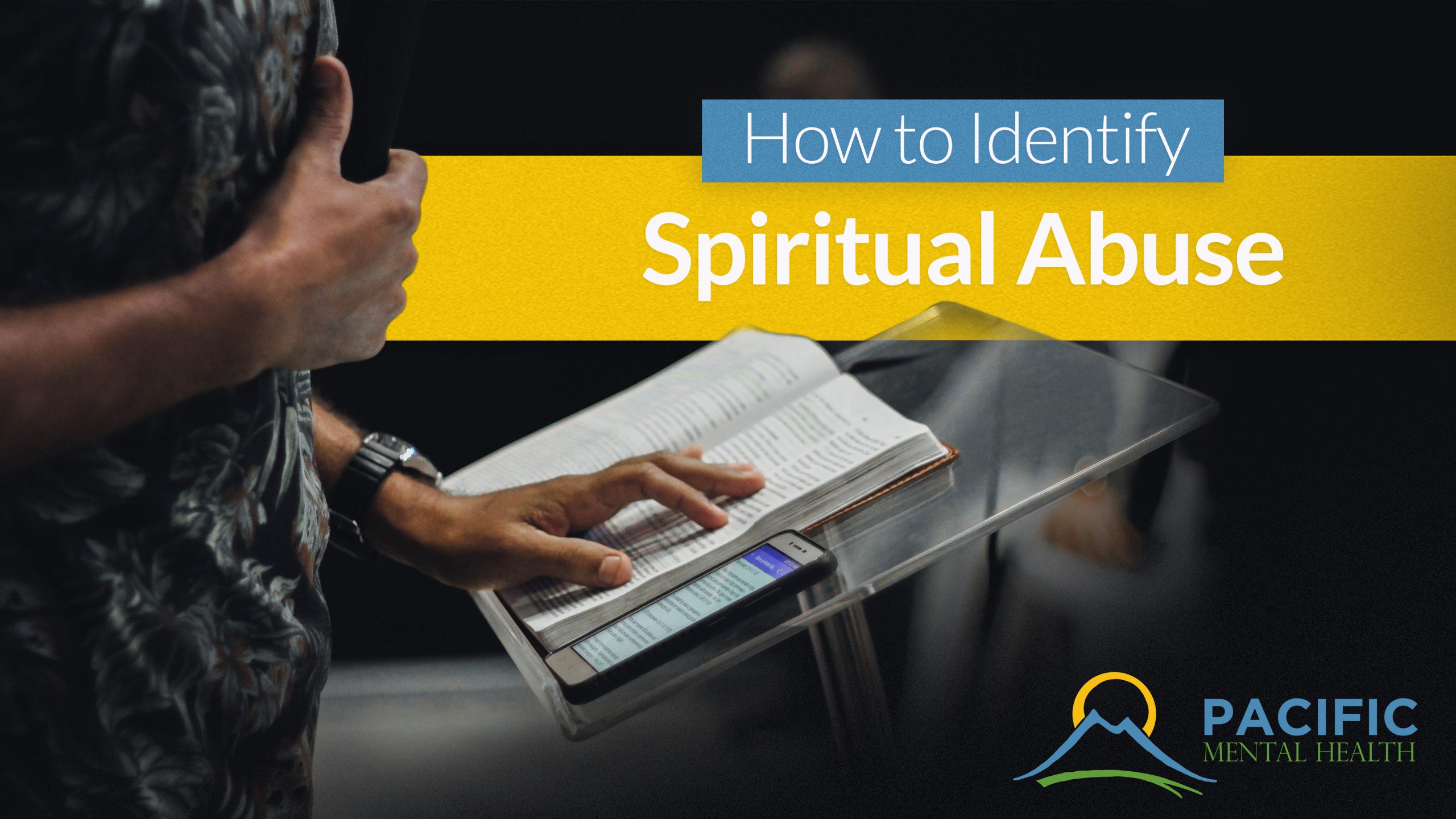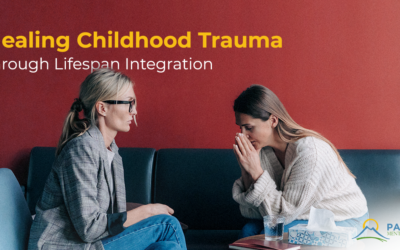Many years ago, my husband and I met with a pastor from our former church in hopes of finding help in addressing some relational harm that was occurring between us and another pastor. As the meeting proceeded, it became apparent that so much more was happening under the surface, although I could not name it at the time. My experience taught me how to identify spiritual abuse.
As our conversation continued, I began to feel “crazy” and that my sense of reality was suddenly up for grabs; these were people I trusted and loved. At one point, during our meeting, the pastor observed that I looked angry. His observation was not inviting, but his tone was subtly laced with judgement and accusation. In fact, my presence became the focus–not the heart of the matter we were there to discuss. There was no authentic acknowledgement and engagement of our legitimate hurt and pain. It was focused on what we looked like. I’m sure my body language did look angry, sitting on the couch with my arms crossed tightly against my chest, trying to contain the intense panic coursing through my body. Actually, I was feeling scared. I responded to the pastor’s challenge by stating that I was afraid. I was afraid I belonged to a church where relational dialogue with congregants is severed because a harmful pastor says he has heard from God. I was afraid I belonged to a church where trust in church leadership is assumed because God commands it. Trust in church leadership is not only assumed, but expected. If you don’t trust, YOU are the problem for not trusting. It was implied that if you don’t trust church leadership, you don’t have faith, and more importantly, you don’t trust God.
In a stunning response to sharing my concerns, the pastor questioned, “Well, surely you would want your pastors to hear from God?”
Unlike common practices in cults, there is a much more pervasive and subtle kind of spiritual abuse that is much harder to recognize as it occurs in mainstream organizations. It can make it challenging when learning how to identify spiritual abuse.
In that moment, I realized we were trying to swat at a few wasps when really there was an enormous hornet’s nest hidden close by. Even so, my feelings were so intolerable and overwhelming that I began to believe I was the problem–my lack of faith and trust, my anger, my inability to explain myself correctly. The truth I could not see then was that the problem was not my husband and I, nor my angry body language. The problem was that we were poking the nest, and getting too close to exposing a rotten system that was in place long before we showed up, and continues in place, despite many others who have also attempted to expose it.
The scenario with that pastor is a classic example of spiritual abuse. Johnson and Van Vonderan (1991) define spiritual abuse as the “mistreatment of a person who is in need of help, support, or greater spiritual empowerment with the result of weakening, undermining, or decreasing that person’s spiritual empowerment” (p. 20). There are some kinds of spiritual abuse that are easy to spot, particularly for those outside of a church system. Religious cults, for example, have been well-documented in mainstream media and literature. However, spiritual abuse can exist in any religion, church or faith based organization.

Unlike common practices in cults, there is a much more pervasive and subtle kind of spiritual abuse that is much harder to recognize as it occurs in mainstream organizations. It can make it challenging when learning how to identify spiritual abuse. As one of my professors says, it is much more damaging. Johnson and Van Vonderan (1991) give practical descriptions of how this abuse operates, such as:
- Dismissing or overriding feelings
- Using one’s position of spiritual authority to dominate or control
- Using spirituality as a tool to question the victim’s ability to live up to spiritual standards (p. 21)
- Using religious texts, such as scripture, to dismiss legitimate relational harm and conflict.
Other signs you are part of a spiritually abusive church or organization are:
- Lack of transparency about finances
- Being told you are “gossiping” if you tell others what is happening to you
- There is one charismatic leader that the congregation worships and adores
- You experience a chronic sense of inadequacy and shame for not living up to unspoken but impossible standards.
Spiritual abuse sets itself apart from other kinds of abuse in the way those with spiritual authority use spirituality as a weapon against the victim. It is not uncommon to hear “you just need to forgive” or “love covers all things” in response to ringing the alarm bells about damaging behavior. In these examples, leaders are handpicking certain themes in the Bible that sound good, but actually serve to stifle questions, and ignore what is really happening.
My pastor’s response illustrates the weaponizing of spirituality. Notice, there was zero acknowledgement, validation, or invitation to explore further what I had vulnerably shared. It’s an example of overriding the victim’s feelings. Instead, the essence of his dismissive response was to question my spirituality, and ability to have faith in and believe my religious leaders. His subtext: “I will not acknowledge my part in this. Rather, your fear is the problem, and now you need to answer to me what you believe about hearing from God, and it better be the right answer.”
Having language is crucial because it provides a solid foundation on which you can stand against an onslaught of weaponized spirituality.
Thankfully, we are no longer part of that church, but leaving was brutal and left lasting emotional scars. If you resonate with what I have shared, and believe you are part of a spiritually abusive organization, or one which has spiritually abusive leaders, the most important step is to seek wisdom and help from others you trust who are not part of that system or church. Seeking help from a professional counselor who specializes in spiritual abuse, like I do, can be an important part of the process as well.
A spiritually abusive church system can be blinding and masterful at concealing truth, leaving you to doubt your own reality and sense of self. Spiritual abuse can also lay a foundation for other types of abuse to occur within the church including domestic violence and sexual abuse. Often members of the church system–even good friends and family members–can be more committed to keeping the system in place rather than listening or supporting your experiences and truth. They are more comfortable not questioning their perception.
I also recommend educating yourself about spiritual abuse, whether you are part of an organized religion or not, so you can identify and name spiritual abuse when it occurs with you, or others close to you. There are many books, blogs, and spiritual abuse recovery support groups that can begin to put language to feelings you may be unable to. Having language is crucial because it provides a solid foundation on which you can stand against an onslaught of weaponized spirituality.
For many people, spirituality is deeply tied to one’s fundamental identity, family relationships and roles. The process of acknowledging and standing up to spiritual abuse can be extremely painful and disruptive. However difficult it may be, it’s worth it. There is freedom, life, hope, and redemption in doing so, especially when someone you trust takes the journey with you.
Johnson, D., & Van Vonderan, J. (1991). The subtle power of spiritual abuse: Recognizing and escaping spiritual manipulation and false spiritual authority within the church. Bethany Books.
Schedule an appointment with a trained mental health care professional at Pacific Mental Health for treatment coping with the effects of spiritual abuse or other mental health issues . You can also read more articles about mental health topics written by Pacific Mental Health counselors and therapists on our blog.








0 Comments